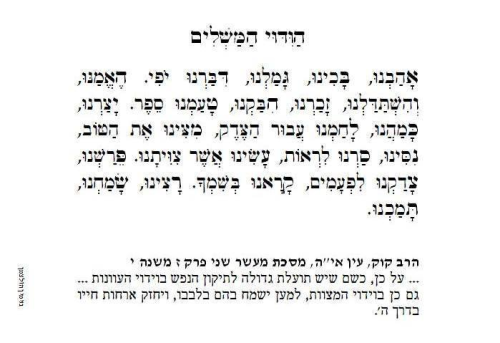 Today, my congregation participated in an ages-old Jewish tradition that many felt was a long missing tradition, and others found incredibly offensive. So what did they do?
Today, my congregation participated in an ages-old Jewish tradition that many felt was a long missing tradition, and others found incredibly offensive. So what did they do?
Did they sit the men separately from the women?
Did they not let women sing or lead from the bimah?
Did they swing a dead chicken around their head to get rid of sins?
Nope. None of those. They did a congregational fund-raising appeal on Yom Kippur morning.
Now at many congregations I’ve been at, fund raising during the high holy days is a common tradition. One morning service you get hit up for Israeli Bonds. Another morning the Temple President (or designee) would get up after the Rabbi to appeal for the needs of the congregation. People were used to it, and they planned and gave every year. At our current congregation, however, that wasn’t the practice. There would be a supplemental annual appeal at the end of the Tax Year, and various fundraisers through the year. So this year’s appeal was a new thing — and as such, uncomfortable for those not used to it.
[At this point, the small Rabbinic voice in my head says: “But isn’t that the job of religion: to comfort the afflicted and afflict the comfortable?”]
The thing is: the appeal is needed. As with most non-profits, subscriptions and memberships only cover about 70% of expenses. The rest depends on annual giving, and low giving means things like deferred maintenance and deferred dreams. It can also lead to little things like “temporary” lines of credit that can create even more deferrals.
So we did the right thing: We brought back the annual High Holy Day appeal. We made the attempt. We swung at the pitch.
Did we hit it out of the park? I have no idea. I know for some it struck just the right tone; for others, it was too much, too heavy handed. Here are some thoughts of mine:
- A very wise Kindergarten teacher at Wilshire Blvd Temple, Lillian Fisher, taught me when I was her assistant that the first time you do something it is not a mistake. There is a distinct possibility that today’s pitch was too heavy handed. But at least we tried, and we can fine tune the presentation over upcoming years.
- Someone else who is very wise — perhaps Mark Twain somewhere on the Internet — said that 90% of everything is not in what you are saying, but how you say it. I certainly think that was the case here. I do believe that how the message was presented could be improved, but it was vital that the message get out there. We just need to work with people to enable them to look past the manner or length of presentation and focus on the underlying message and need.
- Yet another person who is very wise — our current congregational president, Gail Karlin — taught me a very important lesson with respect to appeals like this. The most important thing is not the amount given, but the fact that you participate. A person or families’ participation in an appeal or fundraiser — at whatever level is comfortable for them, even if it is just $1 — is what is truly significant. Participation demonstrates you are part of the community, and that you are willing to give something to support the cause. Alas, far too often we structure our fundraisers to focus on the big machers, and push away the small givers. The message must get out that all participation is equal and valued and necessary.
So do I think doing the appeal was wrong? Nope.
Did I participate? Yep, at a level I was comfortable with. As they would say, you can “count me in”.
Did I particularly like how it was said and presented? Not fully, but I was able to see past the presentation to the need and the message, and I hope that other congregants and supporters can do the same. The need is too great to let a little mishandling of how they present it get in the way. Presentations are ephermeral and tactical. The focus must be on the ongoing need for annual support that is necessary for the strategic long term.
[ETA, for those unfamiliar with the terms: Tactical == short to mid-term, what you need to do now or shortly. Strategic == long-term, the overall end-game approach.]
P.S.: How could they have done it better? Some were uncomfortable with the Rabbi participating in the appeal build-up with his sermon, seeing that more as the role of a Board member. I can see that, but this was the first year after a long dry spell of appeals, and it could be tied in well to the Jubilee year theme. I do think it went on a little long, but I’m a “tell ’em what your gonna say, say it, tell ’em what you said” kinda guy. More significantly, I think the Board Member ask should have been after the Rabbi but before the Cantor’s song, so as to allow people to fill out the cards while the Cantor was singing.
P.P.S: You want to help? You can donate to the congregation here.
P.P.P.S.: Another way to help is to support the Men of TAS Annual Golf Tournment, which helps MoTAS help TAS.




 Another traditional food is a
Another traditional food is a 